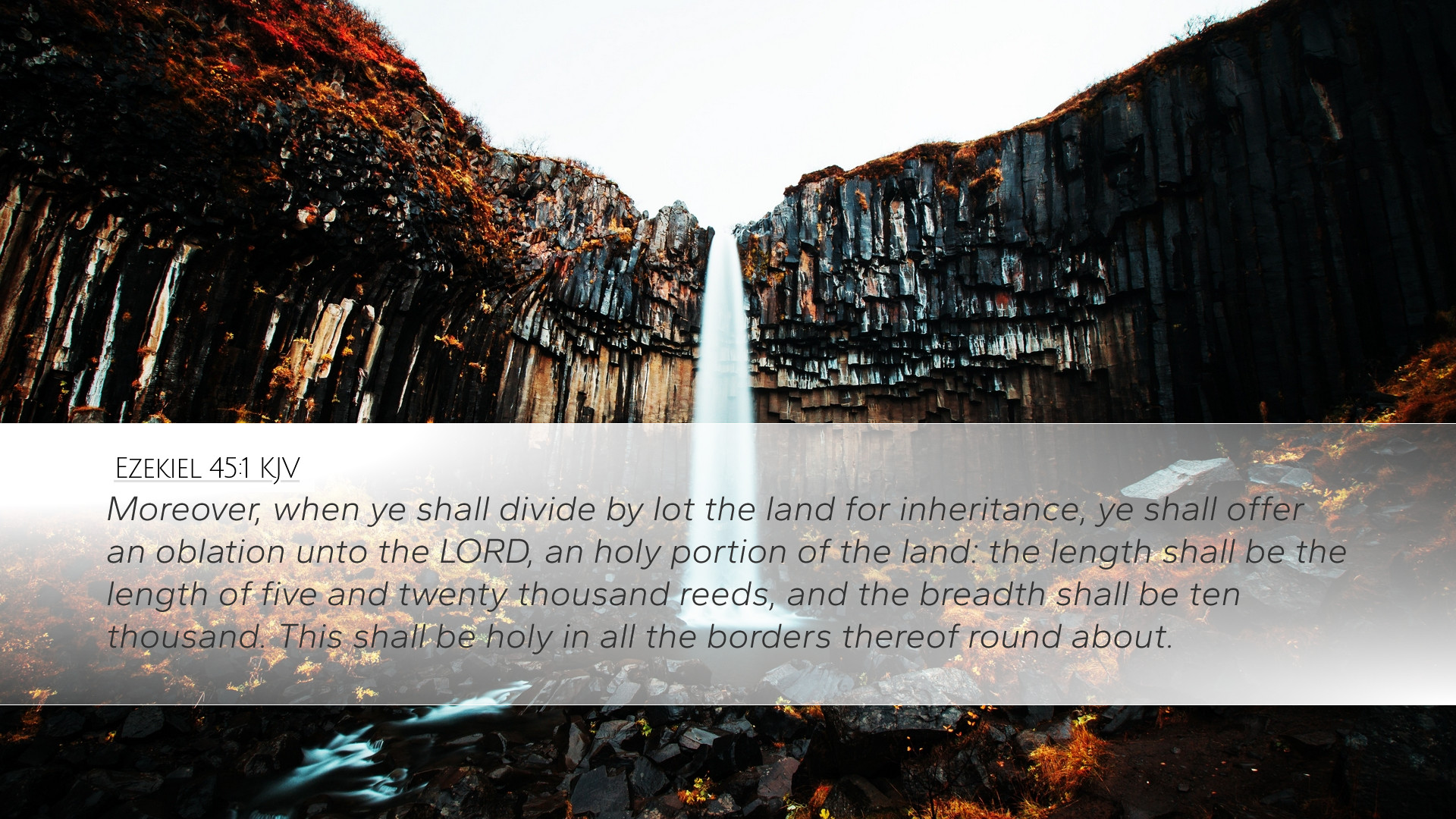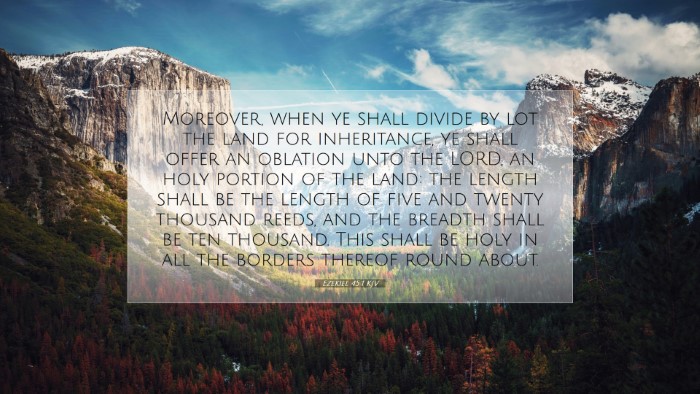Ezekiel 45:1 Commentary
Verse Text: "Moreover, when ye shall divide by lot the land for inheritance, ye shall offer an oblation unto the LORD, an holy portion of the land: the length shall be the length of five and twenty thousand reeds, and the breadth shall be ten thousand: this shall be holy in all the borders thereof round about." (Ezekiel 45:1)
Introduction
Ezekiel 45:1 presents a foundational aspect of the prophetic vision concerning the division of the land among the tribes of Israel post-exile. This passage is significant not only for its specifics concerning land division but also for its theological implications regarding holiness, worship, and the presence of God among His people.
The Context of the Passage
The verses preceding Ezekiel 45 focus on God's judgment and the promise of restoration for Israel. Here, the prophet transitions from visions of judgment to those of future hope and order. This vision is particularly relevant for understanding Israel's community life and their relationship with God following the Babylonian captivity.
Historical Background
Albert Barnes illustrates the importance of land in ancient Israel, noting that it was not merely a possession but a sign of God's promise and covenant with His people. The division of the land signals a restoration of divine order and an opportunity to re-establish worship in accordance with God's law.
The Significance of Division and Oblation
Matthew Henry emphasizes that the act of division underscores God’s sovereignty over the land. This division is not arbitrary but is conducted in a manner that is intended to honor God through the oblation. The holy portion set apart for the LORD demonstrates that even in their inheritance, the Israelites are to place God first.
- This highlights the principle of prioritizing God in all endeavors.
- The systematic approach to land division reflects an orderly society under God's law.
Dimensions of the Holy Portion
In laying out the dimensions for the holy portion, Ezekiel provides precise measurements: 25,000 reeds in length and 10,000 in breadth. Adam Clarke elucidates that these specific dimensions likely held both practical and symbolic significance.
- Practical: It allowed the Israelites to have a clear understanding of what was to be set apart for worship and service to God.
- Symbolic: The measurements signify completeness and divine order — aspects that are intrinsic to God's character.
Theological Implications
The division of land and the designation of a holy portion carry profound theological implications.
- Holiness and Worship: The command to set apart a portion of the land for God underscores the essential nature of worship in the life of the covenant community. As Henry notes, nothing is to be considered common when it comes to worship.
- Divine Presence: The specified area serves as a reminder of God's intention to dwell among His people. The relationship between land, worship, and God's presence is central to the understanding of Israel's identity.
- Restoration of Israel: The act of dividing the land and assigning a holy portion reflects God’s commitment to restore His people, emphasizing His mercy and faithfulness.
Application for Today
For contemporary readers, especially pastors and scholars, Ezekiel 45:1 invites reflection on the importance of setting aside time and place for God. Just as the Israelites were instructed to offer an oblation, modern believers are called to prioritize their relationship with God in their lives and ministries.
Conclusion
In Ezekiel 45:1, the division of land serves as more than just a logistical arrangement; it encapsulates core aspects of covenantal theology, emphasizing God's holiness, the need for proper worship, and the assurance of His presence. Analyzing this verse through the lens of commentaries by respected theologians provides valuable insights into both the historical context of the Israelites and the enduring lessons for believers today.


